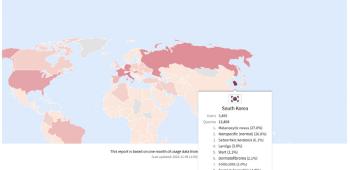Research team develops biological age and cancer prognosis analysis AI technology through face recognition and deep learning
May 09, 2025
|
According to the medical journal Lancet Digital Health, the team applied Face Age to cancer patients and found that cancer patients had an average biological age of five years older than cancer-free patients, and those with higher biological ages were less likely to survive in the short term.
The research team trained FaceAge with the face photos of 58,851 healthy people in the public dataset, and analyzed the face photos taken routinely by 6,196 cancer patients at the start of radiation therapy to estimate their biological age.
As a result, cancer patients appeared significantly older than those without cancer, and on average, their biological age was five years older than their actual age. In addition, biological age higher than the actual age was associated with deterioration of survival rates, especially when the biological age was 85 years or older.
In addition, 10 clinicians and researchers were provided with information such as photos of 100 cancer patients with radiation therapy and cancer conditions, and short-term survival possibilities were predicted, indicating a significant improvement in prediction accuracy when providing face age information together.
The research team said the findings suggest that the deep learning model can improve the survival prediction of cancer patients by analyzing facial photos and estimating the patient's biological age through facial features.
This article was translated by Naver AI translator.














